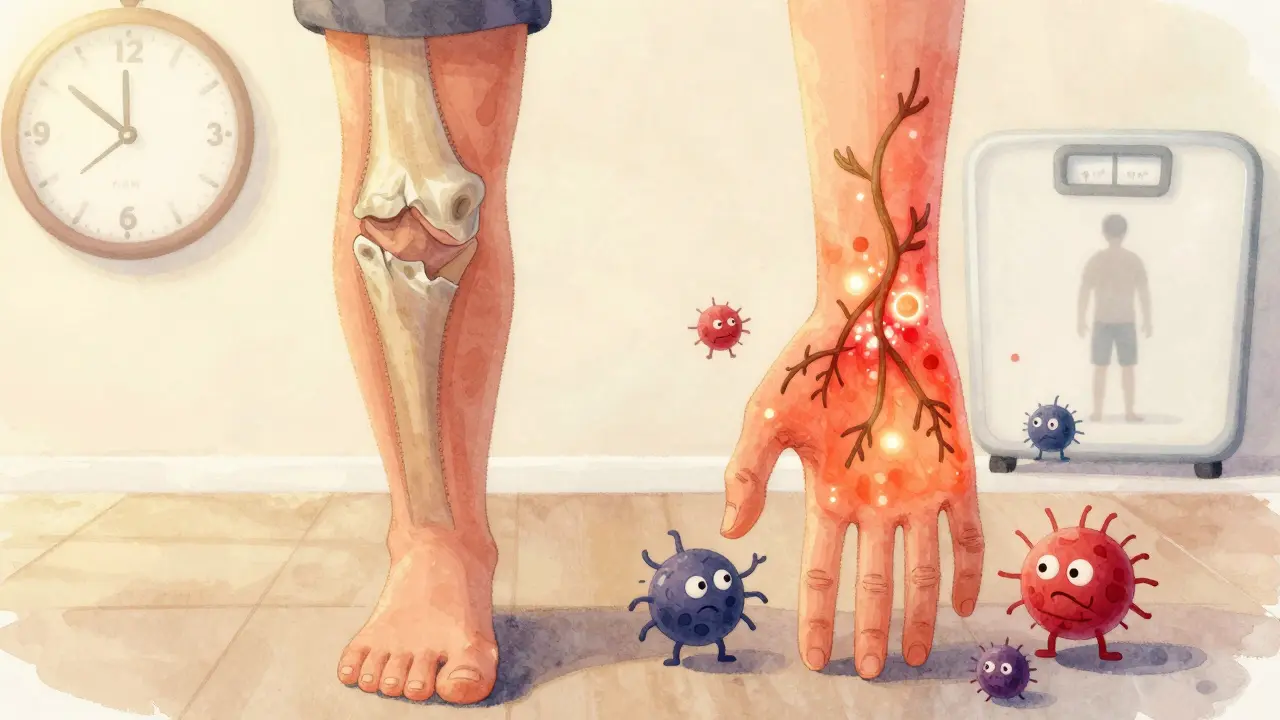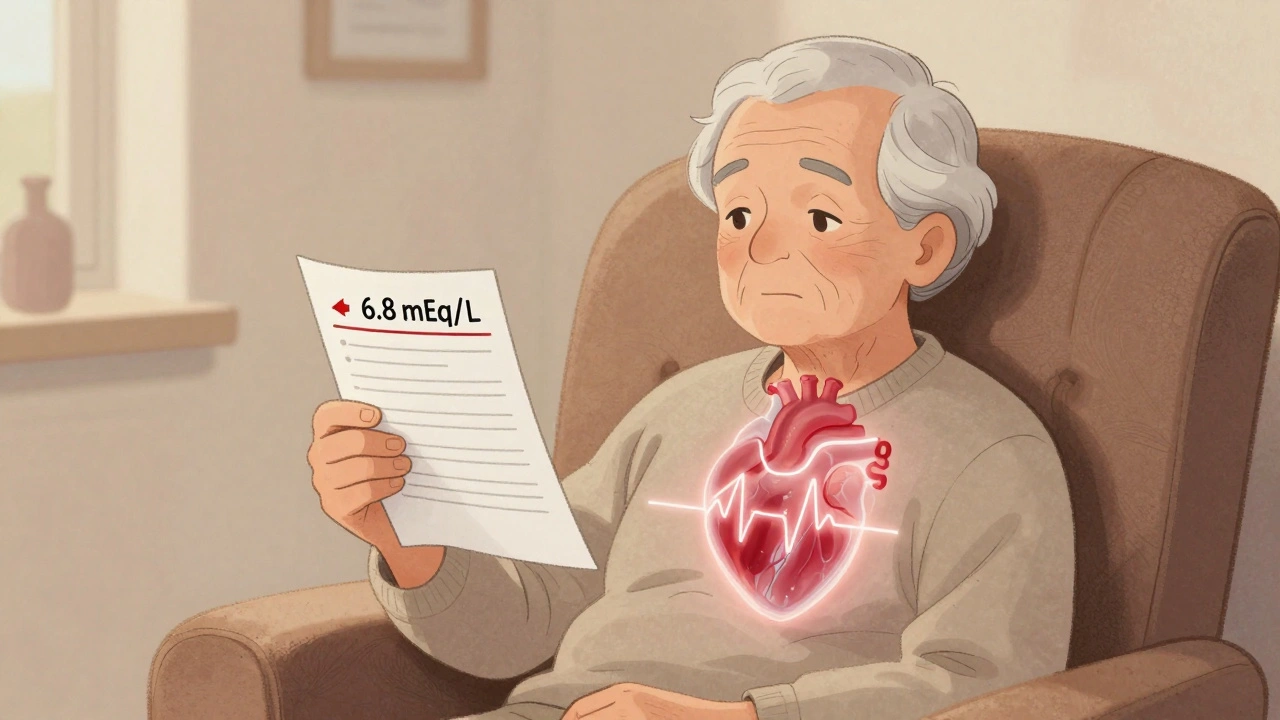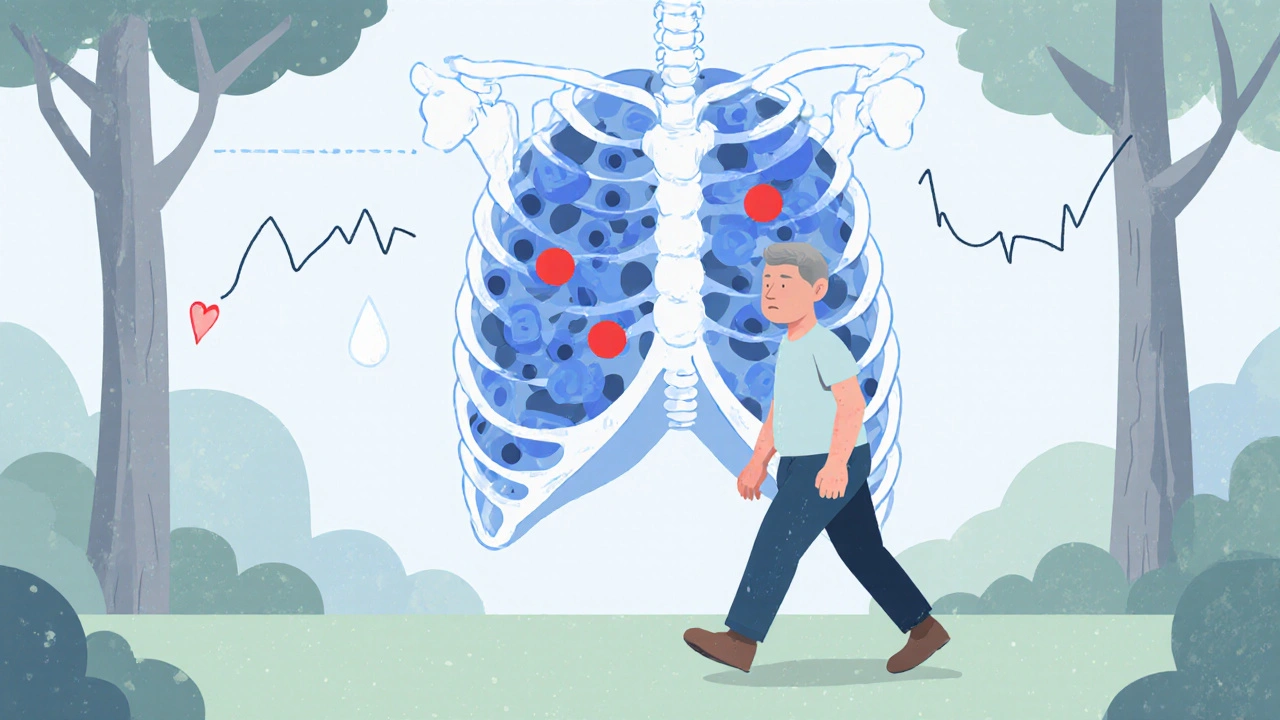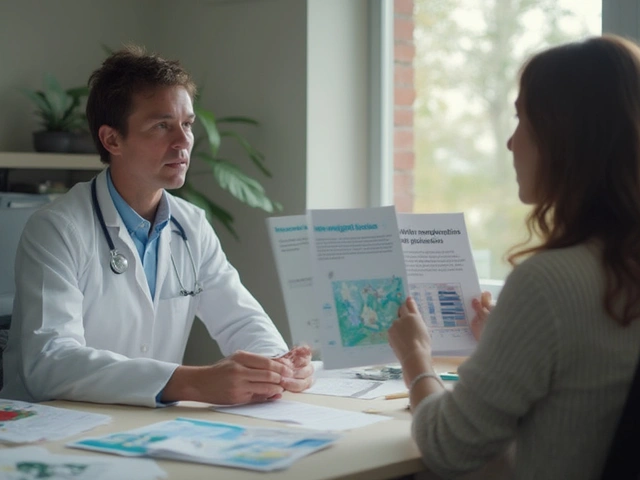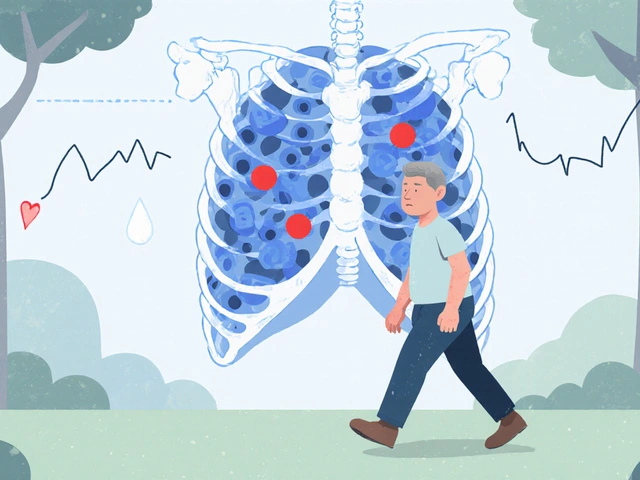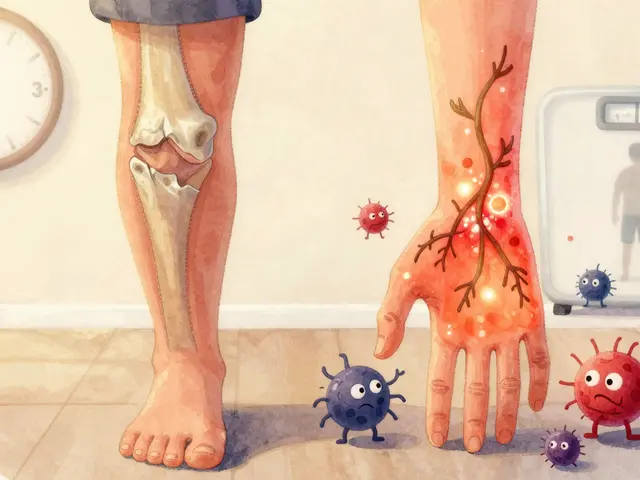Health Conditions: Clear, Practical Guides for Everyday Care
Looking for straightforward info about illnesses and symptoms without the confusing jargon? This section breaks down common health conditions into what causes them, how they show up, and what you can do right now. We focus on useful steps you can take at home, when to call a doctor, and which treatments people usually try.
Quick guides you'll find here
Each article explains the condition in plain language, lists typical symptoms, and points out common triggers. You’ll find practical tips for managing symptoms day-to-day, questions to ask your clinician, and notes on medication interactions or lifestyle changes that matter. We cover both short-term problems like infections and longer-term issues like diabetes or heart conditions. Every guide links to reliable resources and to related articles so you can learn more without guessing.
Spotting hyponatremia in older adults
One example we cover in depth is hyponatremia in the elderly. Older adults are more likely to have low sodium because of medications, chronic illnesses, or changes in how the body handles fluids. Watch for sudden confusion, unusual sleepiness, headaches, nausea, or unexplained falls — these can be early warning signs. Mild cases may cause vague symptoms; severe drops in sodium can lead to seizures or loss of consciousness and need urgent care.
If you care for an older person, check their medicines first. Diuretics, some antidepressants, and pain medications can raise the risk. Simple steps can help: monitor fluid intake if advised by a clinician, keep an eye on weight and swelling, and report new confusion or balance problems right away. Our hyponatremia article walks through what tests doctors use, safe at-home measures, and when hospital treatment is likely.
We also explain how health conditions interact. For example, heart failure and kidney disease change fluid balance and can make electrolyte problems worse. That’s why our guides connect the dots — symptoms, likely causes, and which specialists to see. When a condition affects daily life, we give practical tips on managing routines, meds, and follow-up care.
Worried about self-diagnosing? That’s sensible. Use our symptom summaries to decide whether an issue seems urgent, then call your clinic or local emergency number if symptoms are severe. For ongoing problems, bring a list of symptoms, current medications, and recent weight changes to your appointment — that saves time and helps your clinician pinpoint the cause faster.
Want updates? Bookmark this page or sign up for short alerts when we publish new guides. We add clear, evidence-based posts regularly so you can stay informed without wading through medical papers. If a topic matters to you or a loved one, check the related posts listed under each article — they’re picked to be immediately useful.
Start browsing the guides below to find practical answers and simple next steps for common health conditions. If you need specifics about hyponatremia or other conditions in older adults, open the full article for detailed signs, prevention tips, and when to seek help.
21
Migraine Headaches: Common Triggers, Preventive Medications, and How to Treat an Attack
Learn the most common migraine triggers, how preventive medications work, and what to do when an attack hits. Get practical, science-backed strategies to reduce frequency and take back control of your life.
14
Arthritis Types Explained: Osteoarthritis vs. Rheumatoid Arthritis and Other Common Forms
Learn the key differences between osteoarthritis and rheumatoid arthritis - causes, symptoms, treatments, and why misdiagnosis can lead to serious consequences. Includes info on gout, psoriatic arthritis, and more.
13
Pregnancy and Liver Disease: Understanding Cholestasis and Safe Treatment Options
Intrahepatic cholestasis of pregnancy (ICP) is a liver condition that causes severe itching and raises stillbirth risk. Learn how bile acid levels are tested, why UDCA is the safest treatment, and what delivery timing means for your baby's safety.
12
Chronic Pancreatitis: Managing Pain, Enzyme Therapy, and Nutrition
Chronic pancreatitis causes persistent pain, malabsorption, and diabetes. Learn how enzyme therapy, targeted nutrition, and smart pain management can improve quality of life - backed by clinical evidence and patient experiences.
10
Small Intestinal Bacterial Overgrowth: Breath Tests and Treatment Explained
SIBO is a common but misunderstood gut condition causing bloating, diarrhea, and nutrient issues. Breath tests are the main diagnostic tool, but they’re imperfect. Learn how they work, why they’re controversial, and what actually works for treatment.
7
Dangerous Hyperkalemia from Medications: Cardiac Risks and Treatment
Medications for heart and kidney disease can cause dangerous high potassium levels, leading to heart rhythm problems and cardiac arrest. Learn how to recognize the risks, what treatments work, and how to stay on life-saving drugs safely.
2
Acromegaly: Understanding Excess Growth Hormone and Effective Treatment Options
Acromegaly is a rare hormonal disorder caused by excess growth hormone, leading to gradual physical changes and serious health risks. Early diagnosis and treatment can normalize life expectancy and prevent complications.
21
Pulmonary Tuberculosis and COPD: How the Two Lung Diseases Influence Each Other
Explore how pulmonary tuberculosis and COPD interact, share risks, affect diagnosis, and influence treatment, with practical tips for patients and clinicians.
17
How Chronic Lymphocytic Leukemia Leads to Anemia
Learn why chronic lymphocytic leukemia often leads to anemia, the mechanisms behind it, how doctors diagnose the link, and treatment options for each cause.
29
Jock Itch Duration & Treatment Timeline: What to Expect
Find out how long jock itch typically lasts, what to expect during treatment, and the steps to speed recovery while avoiding common pitfalls.
Latest Posts
Popular Posts
-
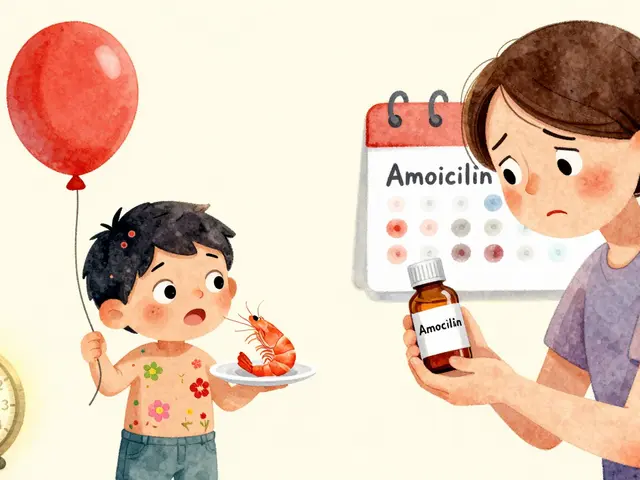 How to Tell Food Allergies Apart from Medication Allergies
How to Tell Food Allergies Apart from Medication Allergies
-
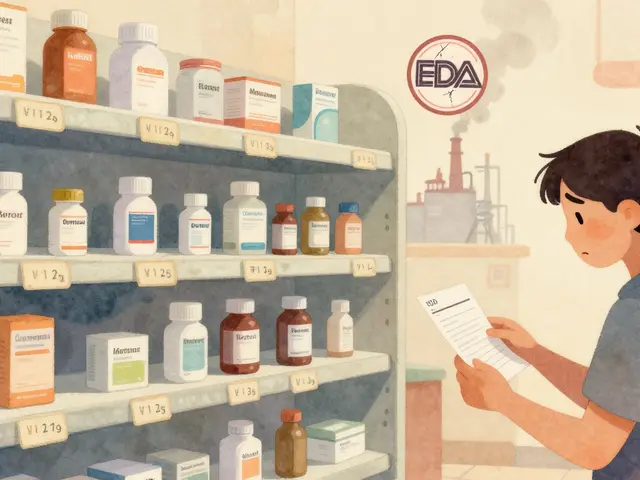 Why Generic Drugs Are Becoming Hard to Find: The Hidden Crisis in Generic Manufacturing
Why Generic Drugs Are Becoming Hard to Find: The Hidden Crisis in Generic Manufacturing
-
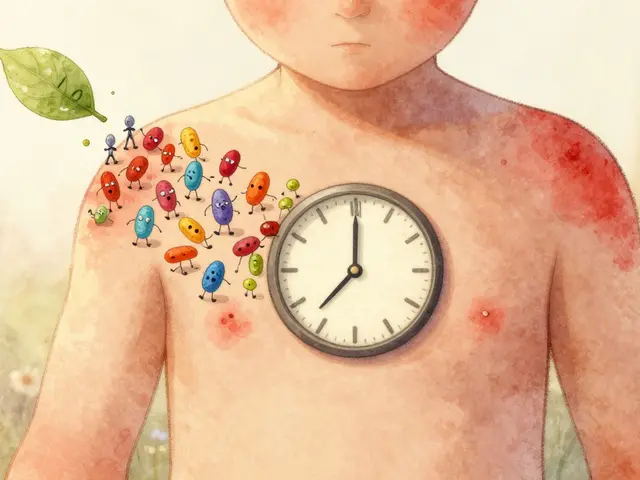 Delayed Drug Reactions: What Happens Days to Weeks After Taking a Medication
Delayed Drug Reactions: What Happens Days to Weeks After Taking a Medication
-
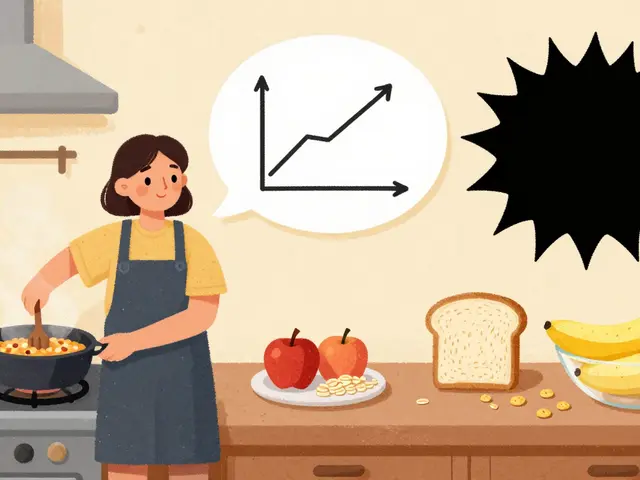 Low-GI Diet for Weight Control: What Actually Works
Low-GI Diet for Weight Control: What Actually Works
-
 Pregnancy and Liver Disease: Understanding Cholestasis and Safe Treatment Options
Pregnancy and Liver Disease: Understanding Cholestasis and Safe Treatment Options

